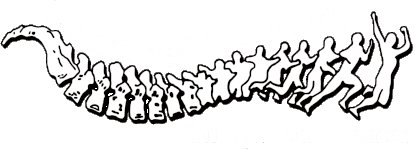Plantar fasciitis refers to a common foot condition that involves an inflamed plantar fascia, which refers to a thick tissue band that runs beneath the bottom of your foot and is responsible for connecting your heel bone and toes. According to Dr. Paul Hyland of Committed to Health Chiropractic Center in Creve Coeur, MO, plantar fasciitis often creates heel pain, especially with the first steps in the morning or after periods of inactivity. Still, it can be managed by a healthcare provider.
Plantar Fasciitis Symptoms
As noted above, the most common plantar fasciitis complaint is pain along the bottom of your foot when first awakening or after the first few steps you take after you have been at rest for some time. And the pain from plantar fasciitis often increases with extended standing or walking.
Common Causes of Plantar Fasciitis
The causes of plantar fasciitis vary but include improper foot structure and mechanics, like flat feet or high arches. In addition, lifestyle factors may have a significant impact on its development.
Overuse or Strain
Overusing your foot - from excessive running, walking, or standing can cause inflammation and micro-tears to the plantar fasciitis.
Improper Footwear
Wearing shoes that are ill-fitting or fit improperly has been shown to contribute to the development of plantar fasciitis.
Obesity
Excess body weight adds stress, causing inflammation of the plantar fascia.
Tight Achilles Tendon
This tendon can add strain to the plantar fascia.
Treating and Managing Plantar Fasciitis
In addition to resting and applying ice to reduce inflammation, the following treatment options are effective in reducing pain and other related symptoms –
- Specific exercises to stretch the Achilles tendon and the plantar fascia.
- Wear shoes that offer cushioning and support. Add custom orthotic inserts for added support.
- Therapeutic exercises and targeted stretches can alleviate symptoms.
- A night splint can help keep the foot in the correct position.
- Light or sound therapies can stimulate healing and reduce pain.
Preventing Plantar Fasciitis
Often, the best solution is prevention –
- Maintain a healthy weight based on medical recommendations.
- When you begin to change your level of activity, do it gradually.
- Incorporate regular stretching of the Achilles tendon and calf muscles into your routine.
Contact a Leading Creve Coeur, MO, Chiropractor Today
If you experience persistent foot pain or suspect you may have plantar fasciitis, contact Dr. Hyland or a Committed to Health Chiropractic Center team member at 314-542-2003 or online. We look forward to helping you identify the cause and manage the pain that may be disrupting your life.
